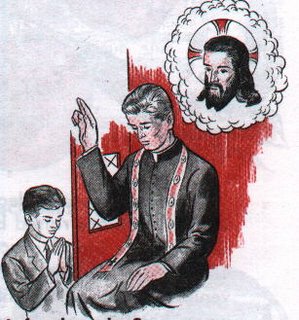 Quid per se peregrinatio prodesse cuiquam potuit? Non voluptates illa temperavit, non cupiditates refrenavit, non iras repressit, non indomitos amoris impetus fregit, nulla denique animo mala eduxit. Non iudicium dedit, non discussit errorem, sed ut puerum ignota mirantem ad breve tempus rerum aliqua novitate detinuit. Ceterum inconstantia mentis, quae maxime aegra est, lacessit, mobiliorem levioremque reddit ipsa iactatio. Itaque, quae petierant cupidissime loca, cupidius deserunt et avium modo transvolant citiusque quam venerant, abeunt.
Quid per se peregrinatio prodesse cuiquam potuit? Non voluptates illa temperavit, non cupiditates refrenavit, non iras repressit, non indomitos amoris impetus fregit, nulla denique animo mala eduxit. Non iudicium dedit, non discussit errorem, sed ut puerum ignota mirantem ad breve tempus rerum aliqua novitate detinuit. Ceterum inconstantia mentis, quae maxime aegra est, lacessit, mobiliorem levioremque reddit ipsa iactatio. Itaque, quae petierant cupidissime loca, cupidius deserunt et avium modo transvolant citiusque quam venerant, abeunt."What has travelling about been able to confer upon anyone? It has never tempered pleasure-seeking, nor restrained lustful passion, nor repressed hatred, nor tamed undisciplined and impetuous love, nor ever finally educated an evil soul. It does not give judgment, nor does it give a man in error pause to consider himself, but rather distracts us with novelties like a low-born child beholding something unfamiliar. It excites the inconstant and suffering like a ship tossed about on the waves. Hence, those places desired most eagerly are deserted even more eagerly and like birds that no sooner arrive than they leave again, these travellers fly away."
-Seneca's Moral Epistle CIV [EP 3-199]
Seneca spends considerable time in this epistle on the topic of stability. He notices, as did St. Benedict, that human beings love to travel in part because it distracts from the hard work of self-examination and self-discipline. In other words:
Novelty seems like a quick fix.
Not much has changed in 2000 years. It's still easier to run away from a problem than face it, but the catch is this: your problems travel with you. I couldn't help but wonder as I contemplated Seneca's point, "Is stability only about location?" Of course it isn't. Stability is about recognizing a problem and sticking it out to fix the problem rather than "changing the scenery" and hoping this problem doesn't arise in the context of novelty.
Two areas of the church could take a lesson: worship style and (more specific to my own context) those who abandon ship for other Christian traditions or confessions.
Look at worship style. There isn't anything wrong, per se, with change in worship style; however, one should ask whether or not the change is novelty-as-escape. I hear this complaint often in some form or another: liturgy is dry, empty - people are just going through the motions. Maybe that is a fair complaint, but the answer to the problem of empty worship isn't different worship. It is always easier to chase after novelty than to ask the hard questions like, "Nobody has complained that liturgy isn't 'spirit-filled' for 2000 years - except heretics. Is the problem with us?" It is hard to imagine that the problem is within, rather than without. That's what instability and novelty-escape is all about...!
Change the outside and you'll change the inside.
Sorry, but it doesn't work that way. If you go to church and "don't get anything out of it," even though the Word is preached and taught and the Sacraments are administered according to Christ's command, then the problem is WITHIN. That means that changing the window-dressing won't address the problem. It also means that groups of people who form their own novelty churches will soon be facing the same old problems in their new "setting." Be ready.
Stability means refusing to change the outside as a quick fix. It is cutting of an habitual, sinful avenue of escape (that doesn't work anyway) so that the real problem can be addressed. Anything else is just distraction.
The second issue I mentioned is like unto the first. It is certainly true that Christians are to flee from error and those who teach it. If a person becomes convinced that their church body or tradition is promoting error, then they should flee to teachers of purer doctrine. HOWEVER, knowing the habitual nature of human beings to seek escape in novelty, one should examine oneself very carefully to make sure that this impulse isn't driving the show.
Stability - it just makes sense. The Church has embraced this spiritual discipline for thousands of years. Heck! Even the pagan can appreciate its incredible value.
-Lucilius
"The fourth kind of monks are those called Gyrovagues.These spend their whole lives tramping from province to province, staying as guests in different monasteries for three or four days at a time. Always on the move, with no stability, they indulge their own wills and succumb to the allurements of gluttony, and are in every way worse than the Sarabaites. Of the miserable conduct of all such it is better to be silent than to speak."
-Regula Sancti Benedicti (Chapter 1)
You can access the Rule of St. Benedict at: http://www.osb.org/rb/text/toc.html#toc




